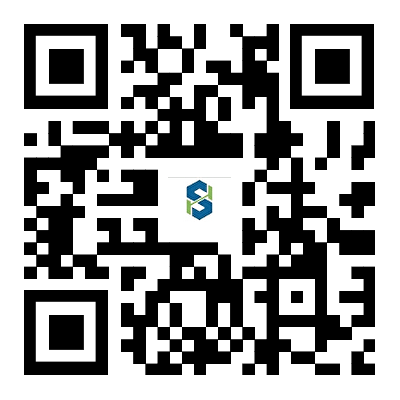Hello, welcome to Guangxi Shinhome Inspection Technology Service Co.,Ltd.!
Q&A with officials from the Ministry of Justice and the Ministry of Commerce on the "Regulations on the Control of Exports of Dual-Use Items of the People's Republic of China"
On September 30, 2024, Premier Li Qiang of the State Council signed and issued State Council Order No. 792, promulgating the Regulations of the People's Republic of China on the Control of Exports of Dual-Use Items (hereinafter referred to as the "Regulations"), which shall come into effect on December 1, 2024. Recently, officials from the Ministry of Justice and the Ministry of Commerce answered reporters' questions on relevant issues concerning the Regulations.
On September 30, 2024, Premier Li Qiang of the State Council signed and issued State Council Order No. 792, promulgating the "Regulations of the People's Republic of China on the Export Control of Dual-Use Items" (hereinafter referred to as the "Regulations"), which shall come into effect on December 1, 2024. Recently, officials from the Ministry of Justice and the Ministry of Commerce answered reporters' questions on relevant issues concerning the Regulations.
Q: Please briefly introduce the background of the promulgation of the Regulations.
A: The Central Committee of the Communist Party of China and the State Council attach great importance to the export control of dual-use items. Dual-use items are goods, technologies, and services that can be used for both civilian and military purposes or that can contribute to enhancing military capabilities. Export control of dual-use goods, technologies, and services is common international practice. Since the 1990s, China has successively formulated a number of administrative regulations and rules for different categories of dual-use items, which have played a positive role in the lawful implementation of export control of dual-use items, safeguarding national security and interests, and fulfilling international obligations such as non-proliferation. In 2020, the Export Control Law was promulgated and implemented, stipulating a unified export control system. Therefore, it is currently necessary to summarize practical experience, integrate existing scattered regulations, and formulate a unified regulation on the export control of dual-use items under the framework of the Export Control Law, further clarifying the Party's leadership over the export control of dual-use items; better implementing the overall national security outlook, coordinating development and security, focusing on improving the effectiveness of export control of dual-use items, and creating a predictable trade system environment to achieve a virtuous cycle between high-quality development and high-level security; and providing institutional support and legal guarantees for safeguarding national security and interests through improved export control measures.
In order to implement the decisions and deployments of the Central Committee of the Communist Party of China and the State Council, the Ministry of Justice, in conjunction with the Ministry of Commerce and other departments, drafted the "Regulations of the People's Republic of China on the Export Control of Dual-Use Items (Draft)", which was approved at the 41st executive meeting of the State Council on September 18, 2024, and will come into effect on December 1, 2024.
Q: What is the overall approach to formulating the Regulations?
A: Guided by Xi Jinping Thought on Socialism with Chinese Characteristics for a New Era, and implementing the overall national security outlook, the Regulations follow the following main approaches: First, coordinating development and security, effectively controlling the export of dual-use items to safeguard national security and interests, while also creating a stable, transparent, and predictable institutional environment to promote compliant trade in dual-use items, achieving a virtuous cycle between high-quality development and high-level security. Second, following the Export Control Law and absorbing the norms of existing administrative regulations and rules to build a unified and efficient export control system for dual-use items. Third, comprehensively promoting domestic and foreign legal systems, establishing an export control system that is in line with international rules based on national conditions, addressing the main contradictions currently faced by China's export control of dual-use items, and meeting the needs of fulfilling international obligations such as non-proliferation. Fourth, combining new situations and requirements, and based on laws such as the Export Control Law, to refine and implement specific institutional measures for the export control of dual-use items, and improve regulatory effectiveness.
Q: What was the situation regarding soliciting opinions during the formulation of the Regulations?
A: In the process of formulating the Regulations, the drafting departments strictly followed the relevant requirements of scientific legislation, democratic legislation, and law-based legislation, and widely solicited opinions from all sides according to procedures. During the research and drafting phase, the Ministry of Commerce, through written solicitations of opinions, on-site investigations in local areas, visits to enterprises, and expert seminars, thoroughly understood the opinions of relevant departments, enterprises, chambers of commerce, associations, university experts, and lawyers, and publicly solicited opinions from the public on the "Regulations on the Export Control of Dual-Use Items (Draft for Comments)". Nearly 600 opinions submitted by relevant enterprises, chambers of commerce, associations, foreign governments, and diplomatic missions in China were carefully studied item by item, and reasonable opinions were fully adopted. After receiving the draft submitted for review, the Ministry of Justice solicited opinions from more than 100 units, including central government units, local people's governments, and enterprises, in four rounds, organized expert appraisals, and listened to the opinions of relevant chambers of commerce and associations. Based on this, the opinions and suggestions from all sides were carefully studied item by item, and as many as possible were absorbed and adopted. The draft was repeatedly revised and improved, and after being submitted to the State Council's executive meeting for deliberation according to the legislative procedures, it was promulgated and implemented. It can be said that the Regulations widely incorporate various opinions and suggestions and are the crystallization of the wisdom of all parties.
Q: What basic principles and requirements are followed in the export control of dual-use items?
A: The basic principles and requirements followed in the export control of dual-use items are a guide for carrying out this work and are very important. In this regard, the Regulations clearly stipulate in the General Provisions: The export control of dual-use items adheres to the leadership of the Communist Party of China, upholds the overall national security outlook, maintains international peace, coordinates high-quality development and high-level security, improves the management and service of export control of dual-use items, and enhances the governance capacity of export control of dual-use items. The export of dual-use items and related activities shall comply with laws, administrative regulations, and relevant national provisions, and shall not harm national security and interests.
Q: Please introduce the provisions of the Regulations on the management system for the export control of dual-use items.
A: The Regulations maintain the stability of the current management system for the export control of dual-use items. In accordance with the provisions of the Export Control Law, the responsibilities of relevant institutions and departments are clarified: First, the national export control coordination mechanism is responsible for organizing and guiding the export control of dual-use items and coordinating major matters related to the export control of dual-use items. Second, the competent department of commerce under the State Council is responsible for the export control of dual-use items, and other relevant departments of the state are responsible for the relevant work of export control of dual-use items according to their respective responsibilities. Third, the competent departments of commerce of the provinces, autonomous regions, and municipalities directly under the Central Government may undertake the relevant work of export control of dual-use items on behalf of the competent department of commerce under the State Council. Fourth, customs are responsible for the specific inspection and release at ports in accordance with the law.
Q: What improvements has the Regulations made to the list of dual-use items subject to export control and the system of implementing temporary controls?
A: The Export Control Law stipulates that the state implements a unified export control system, managed through the establishment of control lists, catalogs, or directories (collectively referred to as control lists), and the implementation of export licenses. Based on the Export Control Law, the Regulations detail the procedures for formulating and adjusting the list of dual-use items subject to export control, requiring the competent department of commerce under the State Council to publish the list in a timely manner and to solicit opinions from relevant enterprises, chambers of commerce, and associations in an appropriate manner during the formulation and adjustment process, and to conduct industrial investigations and assessments when necessary. In addition, the Regulations also detail the procedural requirements for implementing temporary controls, stipulating the number and duration of temporary controls, and the requirements for evaluating the implementation of temporary controls. Currently, the Ministry of Commerce is formulating a unified list of dual-use items subject to export control, which will be implemented simultaneously with the Regulations. In the future, it will be dynamically adjusted to better serve development and security.
Q: The Regulations stipulate many measures for the export control of dual-use items, which indeed improve control effectiveness, but will it affect normal export trade, scientific and technological exchanges, and economic and trade cooperation?
A: Dual-use items can be used for both civilian and military purposes or can help enhance military capabilities. If misused, they may pose a threat to international security. Major countries and regions around the world strictly control the export of such goods, technologies, and services through domestic legislation.
The Regulations are formulated to implement the overall national security outlook, insisting on coordinating development and security, taking into account both the main contradictions currently faced by China's export control of dual-use items and the need to fulfill international obligations such as non-proliferation. Based on national conditions, it improves an export control system that is coordinated with international rules. While establishing a unified and efficient export control system for dual-use items and achieving effective control over the export of dual-use items, it creates a stable, transparent, and predictable institutional environment to promote the development of compliant trade in dual-use items.
It is important to emphasize that export controls do not prohibit exports. The export control measures for dual-use items stipulated in the Regulations are in line with international norms and practices, helping to safeguard trade security, promote the normal trade of dual-use items, and protect the implementation of the strategy to build a strong trading nation. They will not create obstacles to normal international scientific and technological exchanges and economic and trade cooperation, or to the smooth operation of global industrial and supply chains.
Q: What facilitation measures for the export of dual-use items are stipulated in the Regulations?
A: The Regulations mainly stipulate three aspects: First, regarding business qualifications, the registration system for dual-use item export operators stipulated in existing administrative regulations and rules in this field has been abolished. After the implementation of the Regulations, export operators do not need to apply for dual-use item export operator registration in advance and can directly apply for export licenses. Second, regarding the transparency and standardization of export control policies, the Regulations detail the considerations and procedures for formulating dual-use item export control policies. Third, regarding license facilitation measures, the Regulations detail the general license system and stipulate the applicable conditions and procedures. At the same time, in line with international norms and practices, for exports that meet specific circumstances, such as outbound maintenance and exhibition activities, export operators can "obtain export certificates by registering and reporting information" and declare their exports themselves. Fourth, in terms of government services, the competent authorities are required to strengthen guidance and services, update relevant industry export control guidelines in a timely manner, and promptly respond to inquiries from enterprises regarding whether exported items are controlled items, etc., to enhance policy transparency and improve management efficiency.
Q: What are the main institutional provisions of the Regulations regarding strengthening the management of end-users and end-uses?
A: End-user and end-use management is an important part of dual-use item export control. The Regulations strengthen the management of end-users and end-uses throughout the export process. First, it stipulates that when applying for an export license for dual-use items, proof of the end-user and end-use of the dual-use items must be submitted, and the end-user and end-use of the dual-use items must not be changed without authorization. Second, it stipulates that if the end-user or end-use changes, the export operator shall immediately stop the export, report to the competent department of commerce under the State Council, and cooperate with the verification. Third, drawing on international experience and practices, a watch list system is established, stipulating that parties that do not cooperate with the verification of end-users and end-uses may be included in the watch list, and export operators who trade with them shall not enjoy various license facilitation measures.
Q: The Export Control Law establishes a control list system. What situations can be included in the control list for dual-use items, and what measures can be taken against those listed?
A: Complete and effective control measures are the key to effective export control. Based on the Export Control Law, the Regulations clearly stipulate that if an importer or end-user violates the requirements for end-user or end-use management, may endanger national security and interests, or uses dual-use items for terrorist purposes, the competent department of commerce under the State Council may decide to include them in the control list. At the same time, the circumstances that endanger national security and interests are detailed, and it is further stipulated that if an importer or end-user uses dual-use items to design, develop, produce, or use weapons of mass destruction and their delivery vehicles, or if relevant transactions or cooperation are prohibited or restricted by relevant national departments, the competent department of commerce under the State Council may also decide to include them in the control list. For parties included in the control list, the Regulations stipulate that control measures such as prohibiting or restricting transactions of relevant dual-use items may be taken.
Q: What detailed provisions are made in the Regulations regarding supervision and inspection?
A: Based on the Export Control Law and existing regulations, the Regulations further improve the supervision and inspection system. First, it stipulates that the country shall establish and improve a law enforcement cooperation system for the export control of dual-use items, strengthen the entire process of supervision, and promptly discover, stop, and investigate illegal acts of exporting dual-use items. Second, it clarifies that the competent department of commerce under the State Council shall conduct supervision and law enforcement of dual-use item exports in accordance with the law. Third, it strictly enforces procedures, clearly stipulating that law enforcement officers must have at least two people and must proactively present their law enforcement credentials and relevant legal documents. If there are fewer than two people or if law enforcement credentials and relevant legal documents are not presented, the organization and individuals being inspected or investigated have the right to refuse. Fourth, it stipulates the measures that can be taken for supervision and inspection and case investigation, as well as the obligations of export operators to report and cooperate with the investigation and handling. Fifth, it stipulates that Chinese citizens, legal persons, and non-legal organizations shall not accept or promise to accept requests from foreign governments related to export control without consent, including visits and on-site inspections.
Q: What provisions are made in the Regulations regarding the transit, transshipment, transport, and re-export of dual-use items?
A: To prevent the proliferation of weapons of mass destruction and their delivery vehicles and maintain global common security, countries generally include the transit, transshipment, transport, and re-export of dual-use items within the scope of export control and implement appropriate and effective control measures in accordance with UN resolutions and relevant international treaties. The transit, transshipment, transport, and re-export of dual-use items fall within the scope of export control and should be supervised in accordance with the Export Control Law and these Regulations. However, due to the special nature of their export forms, the entities applying for export licenses are different from those for general dual-use item exports. Therefore, the Regulations stipulate that the transit, transshipment, transport, and re-export of dual-use items shall be implemented in accordance with the relevant provisions of the Export Control Law and these Regulations; the specific methods shall be formulated by the competent department of commerce under the State Council in conjunction with the General Administration of Customs.
Q: How to promote the implementation of the Regulations?
A: After the promulgation of the Regulations, the Ministry of Commerce will, under the leadership of the CPC Central Committee and the State Council, comprehensively carry out the export control of dual-use items, and regard the implementation of the Regulations as an important measure to implement the spirit of the 20th National Congress of the CPC and the second and third plenary sessions of the 20th CPC Central Committee. We will attach great importance to this, organize it carefully, and focus on the following aspects: First, strengthen learning and publicity to enhance understanding. In conjunction with the study and implementation of the spirit of the third plenary session of the 20th CPC Central Committee, we will organize staff engaged in export control management in local commerce departments and relevant departments to conduct learning and training, guide local commerce departments to organize learning and training in their respective regions, and ensure that the Regulations are accurately understood and strictly implemented. Second, strengthen coordination and linkage to promote effective implementation. The Ministry of Commerce will strengthen coordination with the ministries of foreign affairs, customs, state security, public security, transportation, financial management, and market regulation, as well as local commerce departments, to comprehensively carry out policy formulation, item listing, license management, supervision and law enforcement, and other related work to form a joint regulatory force. Third, improve supporting systems to enhance management efficiency. We will promptly formulate and revise supporting departmental rules and regulations and policies for the export control of dual-use items, upgrade and improve the electronic government system, optimize management processes, ensure that all provisions of the Regulations are implemented in detail, and continuously improve the modernization of governance capacity and level of export control.












